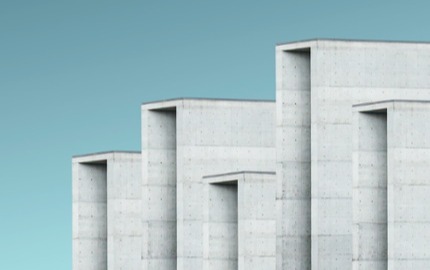Best of the Fractured Atlas Blog 2021: Creating Humane Workplaces
Big Ideas | How We Work | Anti-Racism/Anti-Oppression | Best of the Blog
Fractured Atlas believes in being honest about what a job is, but not fatalistic. Your job is not your family, it’s a way you exchange your labor for money. But it doesn’t have to be soul-crushing or toxic. We are interested in creating humane workplaces, whether that means ensuring fair pay as part of antiracism at work or exploring exactly what we mean when we talk about toxic workplaces.
Here are some of our favorite blog posts from 2021 about our lives at work.
Paying a Living Wage is Anti-Racist
“Many arts, nonprofit, and cultural sector jobs under pay employees, especially for entry-level positions.
These employers tend to do this because they feel like they can’t afford to pay employees better out of fear for their bottom line, but also out of habit. There’s often a sense that you need to suffer through unpaid internships, bad paying jobs, and a few years of barely scraping by to show your dedication to your career choice. But when industries refuse to pay employees enough money to support their basic needs and allow them to save for the future, they privilege workers that come into those jobs with wealth and privilege, which often falls along racial lines.”
The Case Against Having Friends At Work
“When there are too many pinball machines, catered lunches, and happy hours, workplaces promote the idea that we’re all having fun together. And if we’re all having fun together, what’s the problem with staying late, answering emails on the weekends, and never taking a vacation?
Workplaces that blur the boundaries between work and friendship can make it hard to take vacation or even a lunch break, let alone find a new job. It can be hard for individuals to take the breaks and rest that you need (and, in many cases, are legally allotted).
When workplaces treat themselves as social centers, it’s often in service of their own bottom lines, missions, or deliverables. These structures can make us work harder and longer, and feel grateful for the opportunity rather than see the dynamic for what it is.”
The Problem Isn't Zoom, It's Meetings
“It can be thrilling to plan for the future together, to cook up big and ambitious plans. These kinds of meetings can reinvigorate you and your colleagues. They can remind you why you do what you do, and help you scope out to see the big picture and the long future. But without any idea of where to go after those big-dreaming sessions, it can feel futile. If your ideas all evaporate into the ether once you’re not in the same room together, what was the point of all of those plans?
Especially when trying to turn those big, brainstorming plans into something tangible, it’s crucial to end your meetings with some kind of next steps. Whatever those next steps are, even if it is just to mull it over and decide which ones to pursue in a few weeks, you need to make them explicit. Too many meetings full of great ideas without any roadmap forward will eventually make your team wonder what’s the point of generating big and ambitious ideas if they never go anywhere.”
Hiring Reflections from First Time Managers
“I also really had an intense experience of kind of coming to grips with my own bias. The people that I felt most immediately comfortable with were the people who immediately projected being very comfortable, being very chatty, quick on their feet. For one thing, these are all characteristics I see in myself. [Also noteworthy that being quick on your feet does not mean being smarter.]
But then, talking through things with you and reflecting on it, I wondered what are the conditions that make someone enter a job interview feeling more confident than other people? And what are the systemic things that bring that about? Do you feel reflected in the industry or the institution that you're applying to? And if you don't, that might put you more in your guard. There’s a bias towards similarity and the ways it's rooted in structural issues and then also just rooted people’s preference for applicants who are similar to them, which is also not necessarily good for hiring.”
What Exactly is a Toxic Workplace?
“What separates toxic workplaces from a few bad coworkers or the everyday frustrations of a job is that the problems aren’t just individual; they are systemic and culture-wide within the workplace.
Toxic workplaces are places where there are no ways to report abusive or inappropriate behavior, perhaps because there’s no structure to handle these abuses or there’s nobody to report it to who isn’t a part of the problem. A feature of a toxic workplace is not just that it’s bad, but there’s nowhere to go to fix it or find meaningful relief from problems.”
-1.jpeg?width=429&name=hans-eiskonen-aFUbmPIHmzc-unsplash(1)-1.jpeg)
What is an Ethical Reopening?
“Institutions need to consider both how to support people who prefer to engage in work, art, or events from the comfort of their home as well as people who do want to safely move around the world. How can we preserve what we’ve learned about remote working and virtual events to best support people who prefer not to travel to offices or events? How can we ensure that budgets for employees, artists-in-residence, and guest speakers can accommodate travel stipends so that, for example, people can take taxis to your event for their own personal comfort and safety?”
Building a Hybrid Workplace: What We've Learned
“As you think about hybrid workplaces (or any workplace!), build anti-racism into your approach to organizational design.
Consider the different needs people have related to the office. For many Black and POC folks, no longer going into the office was a reprieve from daily microaggressions. How do you build that knowledge into your hybrid model while also working to minimize those microaggressions that your colleagues face on a daily basis?
How do you give people the freedom to work remotely some of the time without passing on the cost of an office life to individuals? One challenge of remote working is that it often is easiest for people with the biggest homes, who have the disposable funds to buy a nice ergonomic chair, standing desk, or other home office supplies. This means that remote work home office setup costs negatively affect people who make the lowest wages. As a function of racism, this means that Black people are disproportionately negatively affected.”
Supporting Front-Facing Arts Workers in the Reopening
“My coworker noted, ‘I have been working in customer service since I was 14 years old and I've had more negative interactions in my 2.5 years at Fractured Atlas than the rest of my jobs combined and it's gotten worse over the last few months. I appreciate how fiery and passionate our members are, but being an artist does not give you permission to lash out.’
We love supporting our members and believe deeply in your work, but we also want to be transparent about how some of us are routinely being treated.
Customer service roles sadly always require some handling of unpleasant or difficult customers. But it’s been getting worse and more frequent. We know that we’re not the only ones experiencing it. It’s hard on my coworkers and hard on team morale and resiliency. It’s harder to get back up again and again if you’re getting knocked down harder and more often.”
Challenges to Making Institutional Change
“As much as an institution or a workplace might say that they value experimentation and understand failure to be a part of growth, many institutions subtly or actively discourage risk-taking.
Nonprofit boards can be too hesitant about affirming statements like Black Lives Matter and other political stances they deem to be “risky” or potentially “alienating.”
In many cases, there’s little reward for risk. Often, a successful risk will result in the risk-taker staying at their same institution with their same title, which isn’t much of an incentive to make bold strokes. At worst, unsuccessful risks can result in losing a job. So not only is there little incentive in the positive, there’s an incentive not to make moves that seem ‘risky.’”
How to Mindfully Leave a Job
“My last few weeks are really in service of making sure my team is supported. Because I've done what I need to do. [I have been asking myself] What can I make sure is in place [to support my team]? And how can I use the last little bits of institutional power I have to make sure you're set up.
I really feel a beautiful transition moment. I've arrived at a different level. I can see the way that I am different from who I was six years ago in a way that is tangible and practical. And so now is the time to let go. It feels very much like a graduation where, yes, there are things that are sad about the ending, but also this next step is a logical and beautiful progression of my career up to this point. It has been informed by working at a place that sees growth as a value add to both the organization and to the person so it can feel like a graduation as opposed to like a bad breakup.”
For more of our favorite articles from 2021, check out the rest of the best of the blog!
About Nina Berman
Nina Berman is an arts industry worker and ceramicist based in New York City, currently working as Associate Director, Communications and Content at Fractured Atlas. She holds an MA in English from Loyola University Chicago. At Fractured Atlas, she shares tips and strategies for navigating the art world, interviews artists, and writes about creating a more equitable arts ecosystem. Before joining Fractured Atlas, she covered the book publishing industry for an audience of publishers at NetGalley. When she's not writing, she's making ceramics at Centerpoint Ceramics in Brooklyn.





